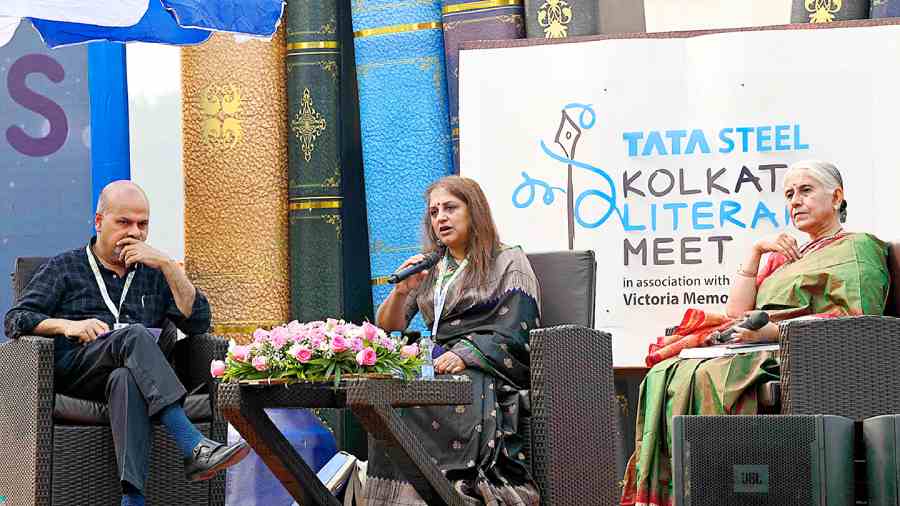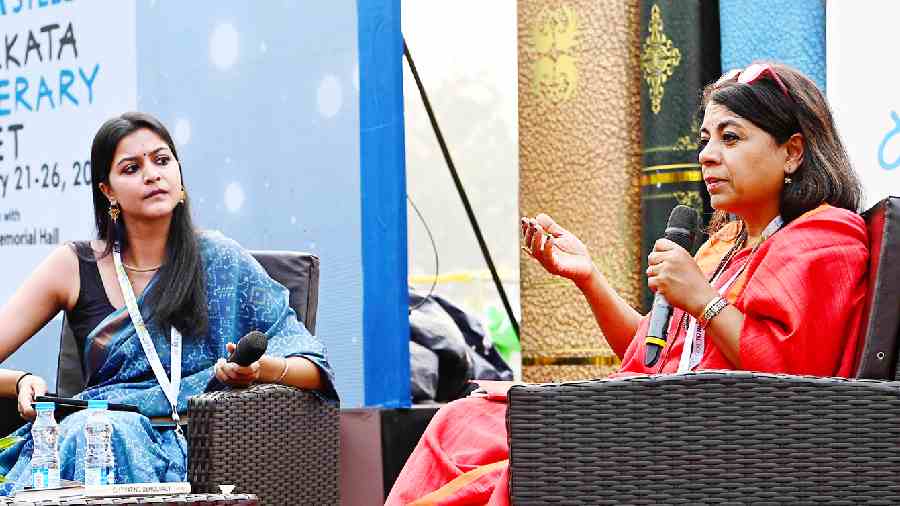Healthcare for the poor cannot leave their mental health out, a teacher and an author of books on the subject said on Sunday.
On the second day of the Tata Steel Kolkata Literary Meet, in association with the Victoria Memorial Hall and The Telegraph, Ankhi Mukherjee, professor of English at Oxford University, discussed her latest book on mental health of the urban poor with psychiatrist Jai Ranjan Ram and academic Supriya Chaudhuri.
The book, Unseen City: The Psychic Lives of the Urban Poor, explores the relationship between global cities, poverty and psycho-analysis.
Ram said the book was a “revelation”.
“Viewing urban poverty through the lens of psycho-analysis.... For me, it was a revelation. One normally would not think of psycho-analysis in relation to the urban poor or poverty. Because it is very Euro-centric, very White... very time-consuming.
“Do you think psycho-analysis can be repurposed for everyone? Sadly, this is not the situation anywhere,” he asked.
Mukherjee said poverty alleviation has to think about a better way to set up “dialogues with the minds of poor populations”.
“We are not just chucking pills at them... like they need only food, clothing and shelter.... I have case studies in my book. I urge you to look at the work of different organisations, public-sector hospitals, NGOs etc. They show results. Where clinical medicine has failed, these sorts of narrative-oriented therapies have worked. So, I do think the purpose could be re-focussed,” she said.
Chaudhuri, professor of English (emerita), Jadavpur University, spoke of the dominant discourse of evidence-based medical intervention in health care for the poor.
“Professional psychiatry uses quite a bit of medication. Only qualified doctors are licenced to practise psychiatry or psycho-analysis. But very often you look at the major health problems of the urban poor and the discourse is all in terms of medical intervention, providing free clinics and so on. That is seen as evidence-based, in a way that psycho-analysis or psychiatry is not, which I think is a false distinction.
“You say in your book that it needs to be the case that all kinds of medical help are available to poor people who suffer stress,” she said.
Mukherjee pointed to a key difference in the two approaches.
“You do need medication when you do. But the problem with evidence-based medicine when it comes to therapy is that you are then working on populations, not with them. The model of psychoanalysis is an extremely bilateral one,” she said.
Ram pointed out how the mind was excluded in the poverty alleviation discourse.

